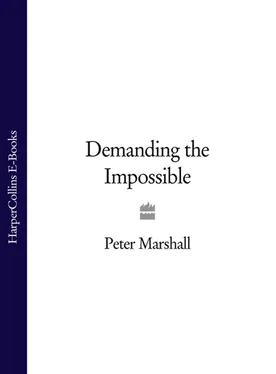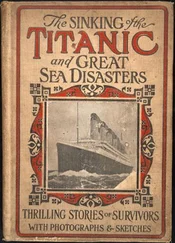From his early childhood, he had a strong utopian sensibility which led him to conjure up imaginary islands. He remained convinced that
a map of the world that does not include Utopia is not worth glancing at, for it leaves out the one country at which Humanity is always landing. And when Humanity lands there, it looks out, and, seeing a better country, sets sail. Progress is the realization of Utopias. 60
Wilde’s love of liberty was encouraged by his mother who saw herself as ‘a priestess at the altar of freedom’. 61 Unlike her, however, he saw nothing noble in suffering and sought to create a beautiful life without ugliness and pain and compulsion. As a student at Oxford, he came to the conclusion not only that ‘ La beauté est parfaite ’ but that ‘Progress in thought is the assertion of individualism against authority.’ 62
After leaving Oxford, Wilde wrote in his twenties a play called Vera; or, The Nihilist (1880). He was already calling himself a socialist, but it is clear from the play that he considered socialism to be not a levelling down but the flowering of personality. Prince Paul declares: ‘in good democracy, every man should be an aristocrat.’ 63 The nihilists detest torture and martial law and demand the abolition of marriage and the right to labour. To make them as authentic as possible, Wilde even borrowed an oath from Nechaev’s Catechism of a Revolutionary which Bakunin may have helped edit.
He later described agitators as
a set of interfering, meddling people, who come down to some perfectly contented class of the community, and sow the seeds of discontent amongst them. That is the reason why agitators are so absolutely necessary. 64
Even though he hated violence, he admired sincere revolutionaries—‘these Christs who die upon the barricades’. Moreover, he saw a beneficial tendency in all rebellion:
Disobedience, in the eyes of any one who has read history, is man’s original virtue. It is through disobedience that progress has been made, through disobedience and through rebellion. 65
But Wilde’s anarchistic sentiments were not just limited to vague calls for liberty and disobedience. More than once he quoted Chuang Tzu to the effect that ‘there is such a thing as leaving mankind alone; and there has never been such a thing as governing mankind.’ Giving his own gloss to this ancient Chinese wisdom, Wilde wrote:
All modes of government are wrong. They are unscientific, because they seek to alter the natural environment of man; they are immoral because, by interfering with the individual, they produce the most aggressive forms of egotism; they are ignorant, because they try to spread education; they are self-destructive, because they engender anarchy. 66
He was also convinced that the accumulation of wealth is the origin of evil by making the strong violent and the weak dishonest: ‘The order of nature is rest, repetition and peace. Weariness and war are the results of an artificial society based on capital; and the richer this society gets, the more thoroughly bankrupt it really is.’ 67
Wilde not only had his genius to declare; he told an interviewer in France in the spring of 1894: ‘I think I am rather more than a Socialist. I am something of an Anarchist, I believe, but, of course, the dynamite policy is very absurd indeed.’ 68 He knew what he was talking about. He met Kropotkin and considered his life to be one of the two most perfect lives he had ever come across; indeed, Kropotkin was ‘a man with a soul of that beautiful white Christ which seems [to be] coming out of Russia’. 69
Wilde gave his own considered version of anarchism in his brilliant essay The Soul of Man under Socialism (1891), a work which was translated into many languages and proved particularly influential in Tsarist Russia.
Wilde had long been drawn to socialism and had expressed his sympathies publicly early in 1889 in a review of a book edited by Carpenter, Chants of Labour: a Song-Book of the People . He found in socialism a new motif for art and hoped art could help in the construction of an ‘eternal city’. Yet he was clearly already concerned to make socialism humanitarian and libertarian, ‘for to make socialists is nothing, but to make socialism human is a great thing’. He took up the theme, two years later, in his great essay. It was initially inspired by a meeting on socialism which he attended in Westminster where the chief speaker was Bernard Shaw. But Wilde’s socialism could not be more different from Shaw’s for it is as pure an anarchism as you can get: ‘there is no necessity to separate the monarch from the mob; all authority is equally bad’, he declares. 70
With the air of a paradox, Wilde argues that socialism is of value simply because it will lead to individualism. But this can be achieved only if socialism is libertarian. With prophetic acumen, he warns: ‘If the Socialism is Authoritarian; if there are Governments armed with economic power as they are now with political power; if, in a word, we are to have Industrial Tyrannies, then the last state of man will be worse than the first.’ 71 Such authoritarian socialism would mean the enslavement of the entire community instead of only a part.
According to Wilde, all modes of government are failures and social democracy means simply ‘the bludgeoning of the people by the people for the people’. Equally all authority is quite degrading: ‘It degrades those who exercise it, and degrades those over whom it is exercised.’ By bribing people to conform, authority produces ‘a very gross kind of overfed barbarism’. 72 He therefore agrees with Chuang Tzu that there is ‘such a thing as leaving mankind alone’ and concludes with Thoreau that ‘The form of government that is most suitable to the artist is no government at all.’ 73
Instead of governing, the State should become merely a ‘voluntary association’ that will organize labour and be responsible for the manufacture and distribution of necessary commodities. Wilde insists that all associations must be quite voluntary. Man should be free not to conform. In all this Wilde agrees with Godwin, but he takes leave of him when he declares categorically that public opinion—‘that monstrous and ignorant thing’—is of no value whatsoever to reform human conduct. 74 People are good only when they are left alone.
Wilde argues like Nietzsche that it is wrong for the rich to pity the poor and give charity, and that there is no point to the poor feeling gratitude: ‘it is finer to take than to beg.’ 75 But unlike most individualists he does not see that private property is a guarantee of personal independence; indeed, for Wilde, it crushes true individualism. It should therefore be converted into public wealth by ‘Socialism, Communism, or whatever one chooses to call it’ and co-operation substituted for competition to ensure the material well-being of each member of the community. 76 With the abolition of private property, there will no longer be any marriage; love will then be more beautiful and wonderful. In the long run, it is not material things that are important; what is really valuable is within.
There are other great advantages to follow from the dissolution of political authority. Punishment will pass away – a great gain since a community is infinitely more brutalized by the habitual employment of punishment than it is by the occasional occurrence of crime. What crime will remain after the eradication of its principal cause in property will be cured by care and kindness. No compulsion should be exercised over anyone and every person should be free to choose his or her work.
According to Wilde, it is nonsense to talk about the dignity of manual labour: ‘Man is made for something better than disturbing dirt.’ 77 Most of it is degrading and should be done by machines, the helots of the future, so that all can enjoy cultivated leisure. Useful things can thus be made by machines, beautiful ones by the individual. The value of art is immense for
Читать дальше












